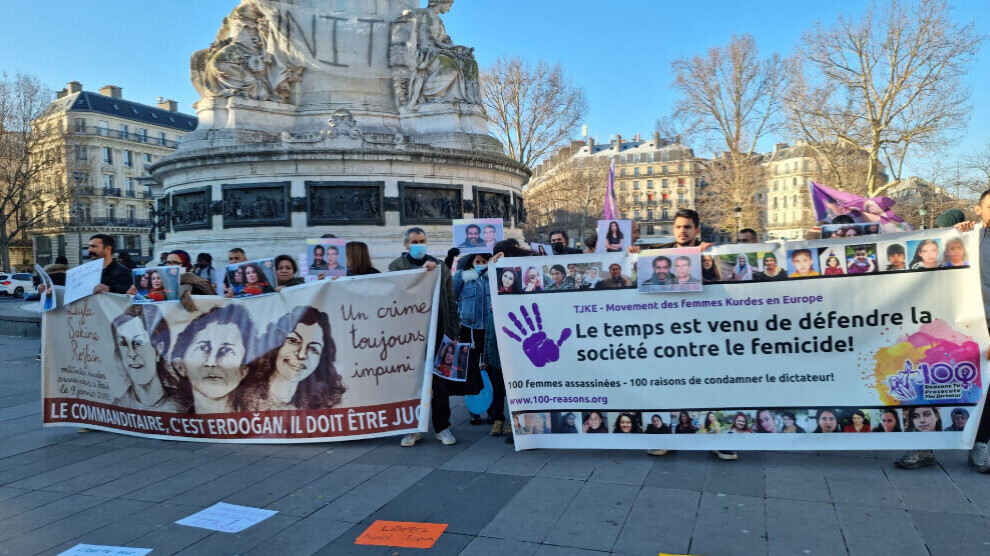Kurdish women in France demonstrate for sick prisoners in Turkey
In view of the dramatic situation for sick political prisoners in Turkey, the Kurdish Women's Movement in France (TJK-F) has appealed to the public and politicians for more commitment.
In view of the dramatic situation for sick political prisoners in Turkey, the Kurdish Women's Movement in France (TJK-F) has appealed to the public and politicians for more commitment.

The Kurdish Women's Movement in France (TJK-F) has called attention to the fatal health situation of sick political prisoners in Turkey with a rally on the Place de la République in Paris. The government in Ankara is pursuing a policy of enemy criminal law and bears no responsibility for ill inmates who have been imprisoned for political motives. "They are subject to permanently inhumane and degrading treatment, which often means imprisonment until death. We call on the French public and politicians not to look the other way, but to act," said a spokesperson.
Turkey has the highest prison rate in Europe. According to the Ministry of Justice, more than 295,000 people are currently considered prisoners, including 38,800 pre-trial detainees and several tens of thousands who were partially "amnestied" and sent to house arrest in the wake of the Corona pandemic. Among the detainees, at least 1,605 are considered sick, and in 604 cases the health situation is even life-threatening, according to the Human Rights Association (IHD). These are usually prisoners of conscience. "The fact that they are nevertheless not released embodies the inhuman ideology of the regime and its reign of injustice and terror. Institutions such as the Council of Europe's Committee for the Prevention of Torture (CPT), but also human rights organisations, must work to prevent the barbaric behaviour towards sick prisoners in Turkey. The AKP is leaving them to certain death,” the statement on behalf of the activists said.
The banner shows the faces of the Kurdish revolutionaries Sakine Cansiz, Fidag Dogan and Leyla Saylemez, who were murdered by a Turkish agent in Paris in January 2013.
In particular, the activists raised the case of HDP politician and lawyer Aysel Tuğluk, who suffers from memory loss after traumatic experiences at her mother's funeral and can no longer care for herself. In July, the medical faculty in Kocaeli diagnosed her with a chronic illness and incapacity. Three months later, the forensic medicine issued a contrary expert opinion. It was thus obvious that the forensic medicine was following political instructions from Ankara and was not independent. "Against this background, we have made it our task to make the penal system in Turkey more of a public issue in this country," said the TJK-F spokesperson.
Four deaths within a few days
Several deaths in prisons have been reported in Turkey in recent days. The week before, political prisoner Garibe Gezer was found dead in her cell. Halil Güneş and Abdülrezzak Şuyur succumbed to severe cancers on Wednesday after decades in prison. Requests to be spared from imprisonment were rejected several times - as usual in cases involving sentences on terror charges. Ilyas Demir, convicted of murder, was found dead in a solitary cell in Bolu T-Type Prison on Friday. The 32-year-old had been sentenced to an aggravated life sentence, which under Turkish law means imprisonment until death.